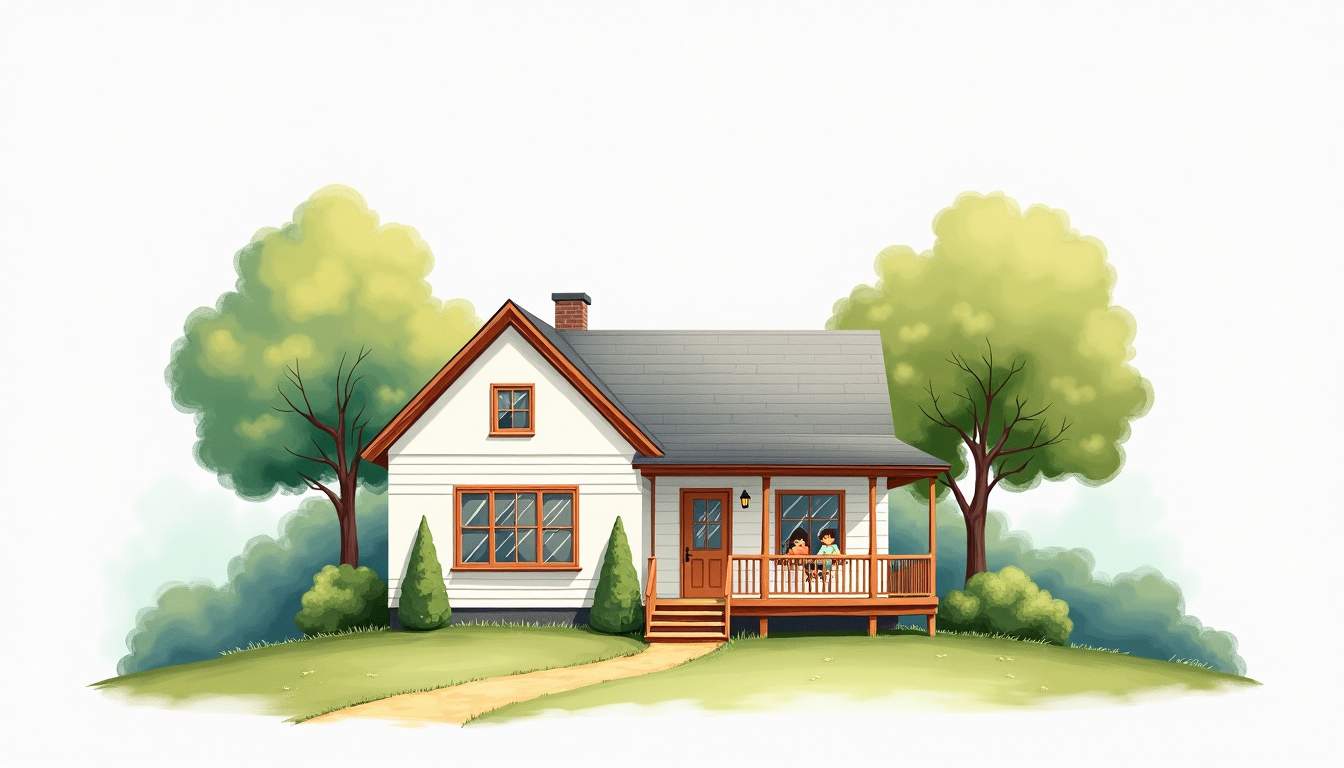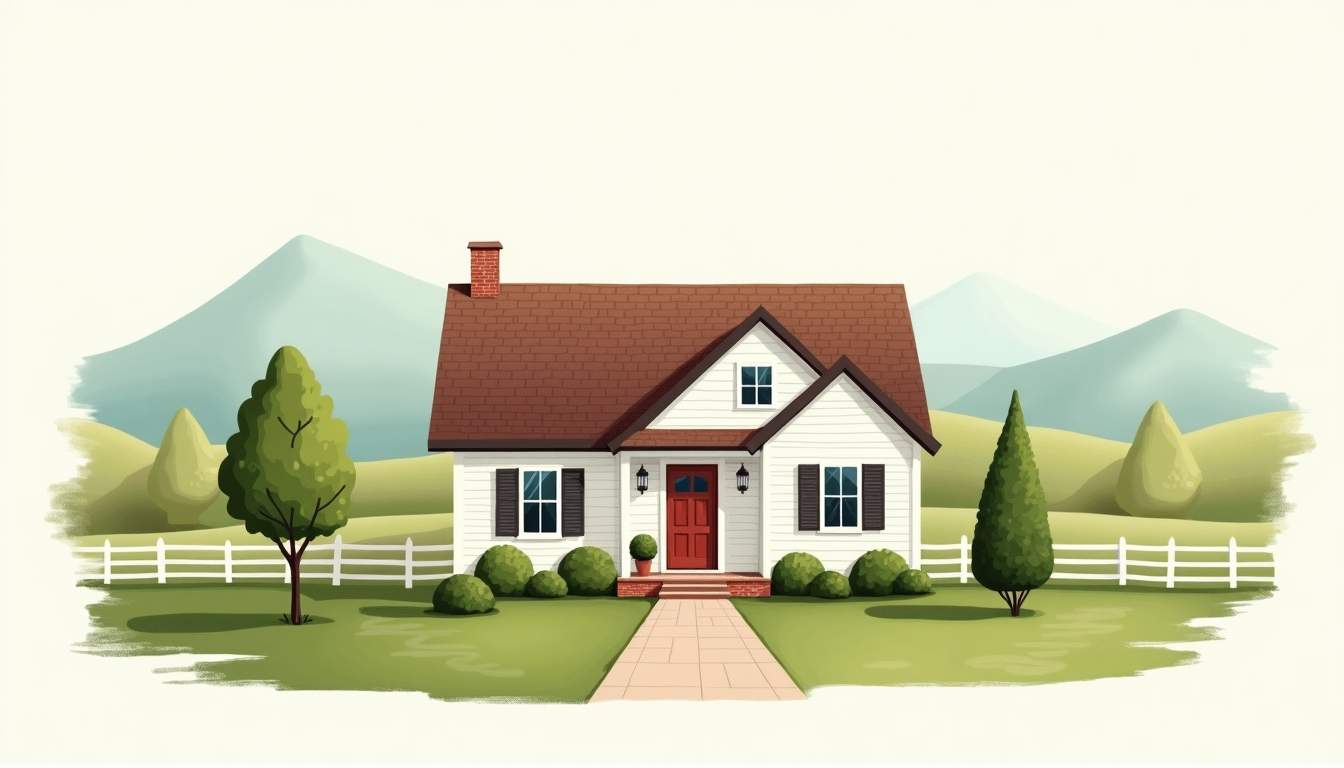
Finding a second home near Knoxville combines practical priorities—budget, commute, investment—with lifestyle choices like mountain views, lake access, and a sense of community. Whether searching for a weekend getaway, a retirement retreat, or a rental property, the region offers a wide range of options from historic cottages near downtown to modern cabins tucked in the foothills of the Great Smoky Mountains. This guide walks through how to define priorities, evaluate neighborhoods, understand market dynamics, and make a smart purchase that fits long-term goals.
Clarifying the primary purpose of a second home helps narrow the search. Is the property a weekend escape, a seasonal rental, a place for holidays and family gatherings, or a potential retirement residence? Each use case changes the importance of factors like proximity to Knoxville, maintenance needs, and rental regulations.

Budget and timing also tie into purpose. A vacation home may accept longer drives or simpler amenities, while a retirement home might prioritize year-round access to healthcare, social opportunities, and low-maintenance construction. Establishing intent up front saves time and avoids compromises that lead to disappointment.
Weekend retreats often prioritize privacy, outdoor access, and a cozy atmosphere. Long-term living emphasizes convenience, year-round comfort, and reliable utilities. Consider how often the property will be used and who will use it—children, elderly relatives, or vacation renters—and let that guide choices about layout, insulation, and local services.
Short-term rentals can generate income but require compliance with local ordinances and effective property management. Long-term rentals demand less hands-on effort but might produce lower returns. Research occupancy trends for nearby vacation destinations, such as Pigeon Forge or Gatlinburg, and balance revenue expectations against upkeep and vacancy rates.
The Knoxville area is diverse: urban amenities in the city, tranquil lakeside communities, and scenic mountain towns within an hour's drive. Defining how close the property should be to Knoxville is essential—commute time affects usability and rental appeal. Nearby neighborhoods each bring distinct advantages and drawbacks.
Considerations include access to major roads like I-40 and I-75, proximity to McGhee Tyson Airport, and nearby attractions. For those who want mountain views, areas east toward the Great Smoky Mountains provide elevation and scenery. West and north of Knoxville offer quieter rural landscapes and lakeside opportunities.
Towns along the foothills, such as Townsend and Maryville, appeal to buyers who want easy access to hiking, scenic drives, and a sense of small-town charm. These locations often feature cabins and homes with larger lots and panoramic views. Take into account road conditions in winter and the availability of utilities on more remote parcels.
Lakes Norris and Cherokee Lake, as well as other reservoirs, create attractive settings for waterside living. Properties with private docks or community boat access can be popular for summer rentals and weekend leisure. Check public access, flood zones, and water-quality issues when considering lakeside homes.
Suburbs like Farragut, West Knoxville, and Hardin Valley are ideal for buyers who want quick access to cultural amenities, restaurants, and medical facilities. These areas are suited for buyers planning frequent visits or eventual full-time relocation. Suburban homes may have smaller yards but greater infrastructure and resale liquidity.
Beyond the purchase price, include property taxes, insurance, utilities, maintenance, and possible homeowner association (HOA) fees. Mountain or lakeside properties sometimes carry higher insurance costs due to wildfire or flood risk. Factor in seasonal maintenance like winterizing, septic service for rural homes, and landscaping for high-use rentals.
Loan availability and financing terms can differ for second homes versus primary residences. Lenders often require higher down payments and may have stricter debt-to-income ratio thresholds. A clear financial plan helps determine whether to buy outright, take a mortgage, or consider alternatives like fractional ownership in resort communities.
Assess local risks—flood plains, wildfire zones, and landslide-prone slopes—before submitting an offer. Flood insurance might be mandatory and can add significantly to annual costs. Request history of past natural events and verify mitigation measures such as retaining walls, drainage systems, and defensible space around structures.
Second homes need reliable caretaking, especially if far from a primary residence. Budget for seasonal checks, cleaning between guests if rented, and emergency repairs. Many owners contract local property managers to handle maintenance and guest services. Compare management fees with the time and hassle saved to decide whether professional management makes sense.
Inspection is crucial for second homes, especially older cabins or properties in remote areas. Schedule a comprehensive inspection covering structural integrity, roof condition, HVAC, plumbing, electrical systems, and pest issues like termites. For waterfront or hillside properties, add a soils inspection and evaluate erosion control.
Visiting the property at different times—weekday vs. weekend, daytime vs. night—reveals noise levels, neighbor activity, and seasonal traffic. Pay attention to cellphone coverage and internet options; reliable connectivity is increasingly important for both renters and owners who want to stay connected while away.
Road access matters. Steep, unpaved drives can become impassable in winter or after heavy rains. Check whether roads are maintained by the county or private associations and who is responsible for snow removal. Verify water sources—public supply versus well—and septic system conditions for older properties.
Investigate zoning rules and nearby development plans. A pristine view can disappear if a commercial project or dense subdivision is planned nearby. Local planning departments often provide maps and upcoming project information. Also, confirm short-term rental regulations if rental income is part of the plan; some communities restrict or license vacation rentals.
Local real estate agents, lenders, inspectors, and attorneys offer invaluable knowledge about market trends, neighborhood nuances, and legal requirements. An experienced agent familiar with second homes and vacation rentals can identify properties that meet specific needs and negotiate favorable terms.
Mortgage lenders experienced with second-home financing can clarify down payment expectations and interest rates. A local attorney or title company provides title searches and ensures there are no liens or easements that affect property use. Property managers and landscapers familiar with seasonal maintenance in the Knoxville area complete the local support team.
Select an agent who has a track record with second homes, knowledge of target neighborhoods, and connections to local inspectors and contractors. A strong agent will provide market comparables, suggest realistic offer strategies, and help uncover potential issues early in the process.
Obtain a current survey and title work before closing. Surveys reveal property boundaries and easements, which is crucial when privacy and lot shape influence the home’s usability. Confirm that all necessary permits were obtained for past renovations to avoid surprises during resale or insurance claims.
Think about how the second home will fit evolving lifestyle needs. Mobility limitations, changing family structures, or a desire to age in place can alter the suitability of a property over time. Choosing a home with flexible spaces, single-level living options, or potential for modifications protects long-term value.

Local amenities—healthcare access, grocery stores, cultural institutions, and recreational opportunities—affect daily convenience and resale appeal. Properties with easy access to state parks, golf courses, or charming downtown districts tend to retain value, especially in regions popular with retirees and vacationers.
Markets fluctuate, so evaluate resale potential based on location desirability, property condition, and comparable sales activity. Buying in a stable neighborhood with limited new construction nearby can preserve value. Timing the market is difficult; focus instead on buying a property that meets personal goals and is financially sustainable.
When ready to make an offer, include contingencies for financing, inspection, and appraisal. For competitive listings, be prepared to move quickly but avoid waiving inspections or due diligence unless the risk is understood. Work closely with the agent to structure an offer that balances attractiveness to the seller with protections for the buyer.
After closing, set up utilities, insurance, and local services promptly. If renting, create clear listings, set competitive rates, and establish cleaning and maintenance schedules. For seasonal homes, develop a checklist for opening and closing the property each year, covering HVAC service, plumbing winterization, and pest prevention.

Join local community groups or neighborhood associations to stay informed about area events and issues that could affect property value. Establish relationships with neighbors, contractors, and emergency contacts so managing the second home becomes less stressful and more enjoyable.
Protect the investment with periodic inspections and regular maintenance. Keep detailed records of repairs and upgrades for tax and resale purposes. Balance personal enjoyment with practical stewardship to ensure the second home remains a source of pleasure and financial stability for years to come.
Finding the perfect second home near Knoxville requires balancing location, budget, lifestyle, and long-term value. Careful research, local expertise, and thorough inspections help avoid common pitfalls. Whether seeking mountain solitude, lakeside fun, or a suburban retreat, a thoughtful approach will lead to a property that fits current needs and adapts to future plans.
Ready to find a second home that perfectly blends luxury, comfort, and natural beauty? Tennessee National offers an exceptional gated community experience with access to a Greg Norman Signature Golf Course, private marina, waterfront dining, and over 20 member amenities. Whether you’re seeking a move-in ready residence or a custom build, explore resort-style living surrounded by scenic trails and vibrant social opportunities. Schedule a private tour today and start making lasting memories in your perfect second home near Knoxville.